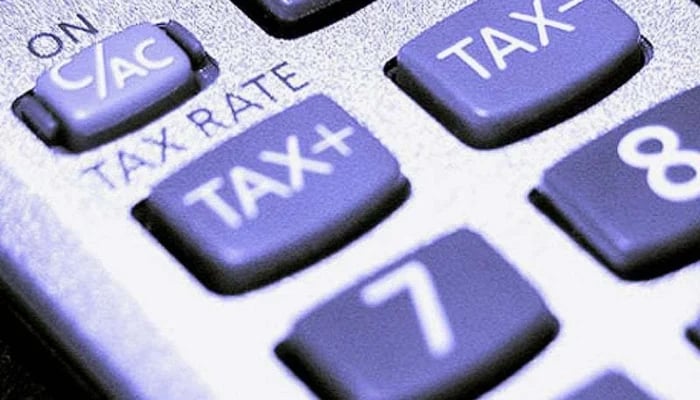FBR to tax retailers in five big cities
ISLAMABAD: The Federal Board of Revenue (FBR) has decided to impose a tax on retailers in five big cities of the country including Karachi, Islamabad, Lahore, Peshawar, and Quetta, Geo News reported, citing sources on Thursday.
The sources said Rs100 billion in revenue would be generated through imposing a tax on 3.5 million retailers in those cities and for that purpose, the board had prepared a scheme. “In the first phase, retailers will be taxed in the four provincial capitals and the federal capital,” they said.
They said the taxation would be based on the size of the shop and the volume of its annual income and it would be collected every month. The sources said the scheme was completely ready and they would launch it upon getting the green light from the government.
At least 10% advance tax would be charged on retailers’ annual income, they said adding that under the scheme the tax would be imposed on businesspersons associated with any sector. The News reported last month that after the International Monetary Fund’s (IMF) rejection of introducing any fixed scheme for retailers, the caretaker government had finalised the ‘Tax Asaan Application’ for collecting tax from small shopkeepers based on the valuation of each shop determined by the FBR.
Official sources had confirmed that the retailers’ scheme was almost finalised and now the caretaker government would grant permission to launch this scheme before the completion of its stipulated timeframe. In the past, every scheme to bring millions of retailers into the tax net met with failure.
-
 Alan Cumming Shares Plans With 2026 Bafta Film Awards
Alan Cumming Shares Plans With 2026 Bafta Film Awards -
 OpenClaw Founder Peter Steinberger Hired By OpenAI As AI Agent Race Heats Up
OpenClaw Founder Peter Steinberger Hired By OpenAI As AI Agent Race Heats Up -
 Kate Middleton's Reaction To Harry Stepping Back From Royal Duties Laid Bare
Kate Middleton's Reaction To Harry Stepping Back From Royal Duties Laid Bare -
 Rose Byrne Continues Winning Streak After Golden Globe Awards Victory
Rose Byrne Continues Winning Streak After Golden Globe Awards Victory -
 Ice Hockey Olympics Update: Canada Stays Unbeaten With Dominant Win Over France
Ice Hockey Olympics Update: Canada Stays Unbeaten With Dominant Win Over France -
 Brooklyn Beckham Makes This Promise To Nicola Peltz Amid Family Feud
Brooklyn Beckham Makes This Promise To Nicola Peltz Amid Family Feud -
 Chinese New Year Explained: All You Need To Know About The Year Of The Horse
Chinese New Year Explained: All You Need To Know About The Year Of The Horse -
 Canadian Passport Holders Can Now Travel To China Visa-free: Here's How
Canadian Passport Holders Can Now Travel To China Visa-free: Here's How -
 Maya Hawke Marries Christian Lee Hutson In New York Ceremony
Maya Hawke Marries Christian Lee Hutson In New York Ceremony -
 Glen Powell Reveals Wild Prank That Left Sister Hunting Jail Cells
Glen Powell Reveals Wild Prank That Left Sister Hunting Jail Cells -
 Edmonton Weather Warning: Up To 30 Cm Of Snow Possible In Parts Of Alberta
Edmonton Weather Warning: Up To 30 Cm Of Snow Possible In Parts Of Alberta -
 'A Knight Of The Seven Kingdoms' Episode 5: What Time It Airs And Where To Stream
'A Knight Of The Seven Kingdoms' Episode 5: What Time It Airs And Where To Stream -
 Amy Schumer Drops Cryptic Message On First Valentine Amid Divorce
Amy Schumer Drops Cryptic Message On First Valentine Amid Divorce -
 Savannah Guthrie Sends Desperate Plea To Mom Nancy Kidnapper
Savannah Guthrie Sends Desperate Plea To Mom Nancy Kidnapper -
 NBA All-Star 2026 Shake-up: Inside The New USA Vs World Tournament Format
NBA All-Star 2026 Shake-up: Inside The New USA Vs World Tournament Format -
 Warner Bros Consider Reopening Deal Talks With Paramount, Says Reports
Warner Bros Consider Reopening Deal Talks With Paramount, Says Reports




